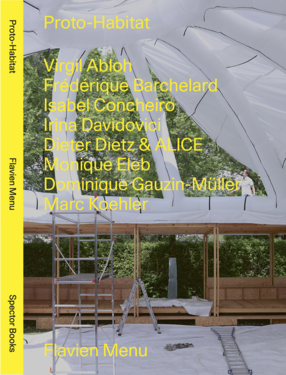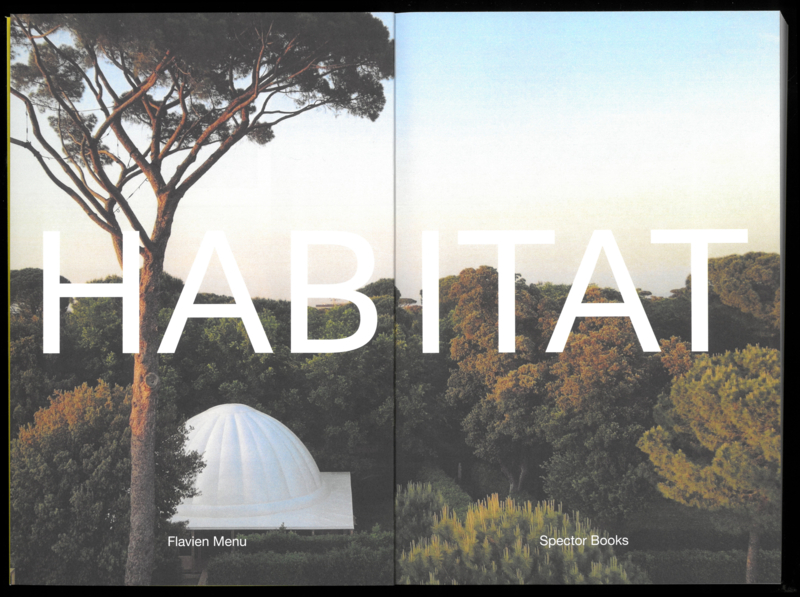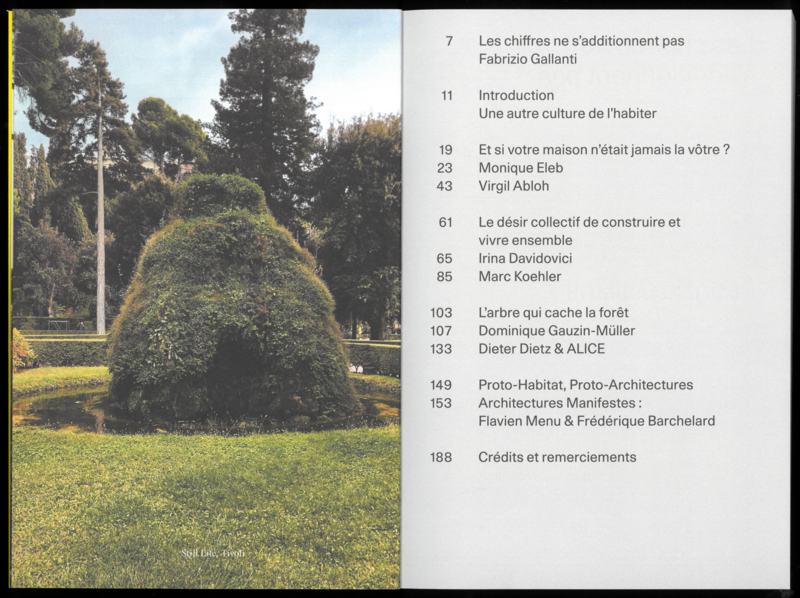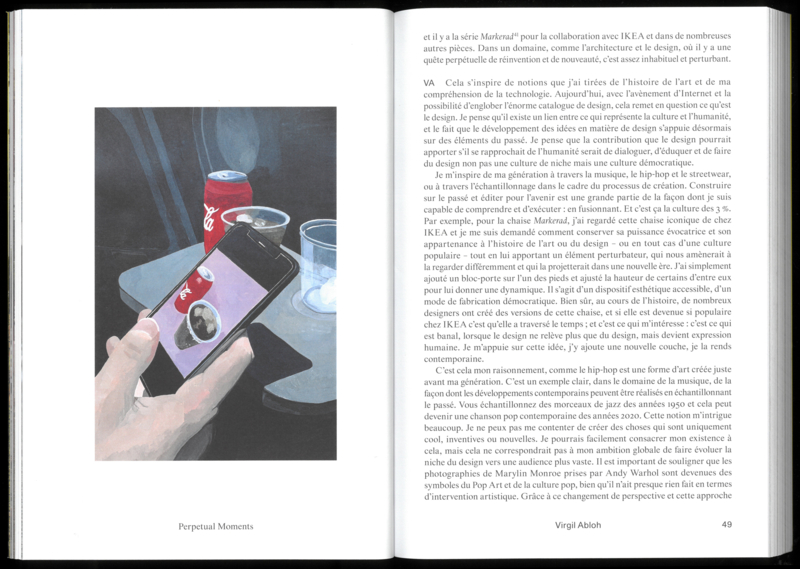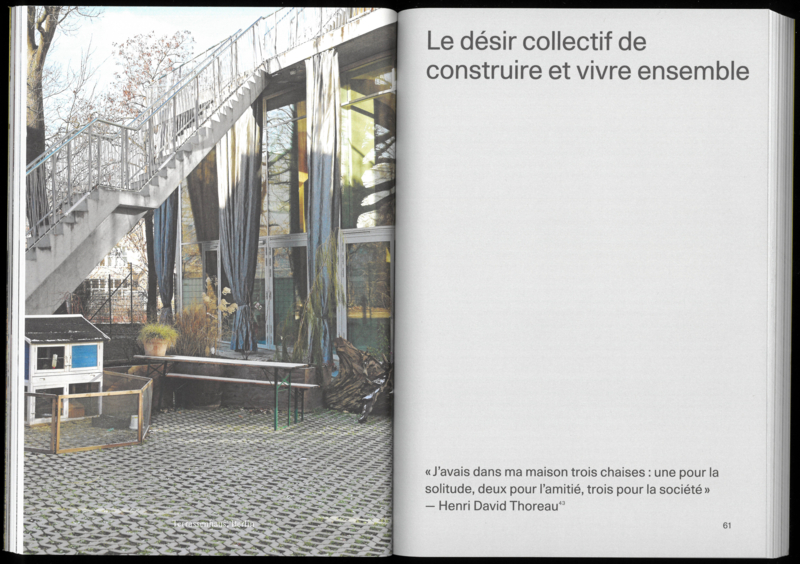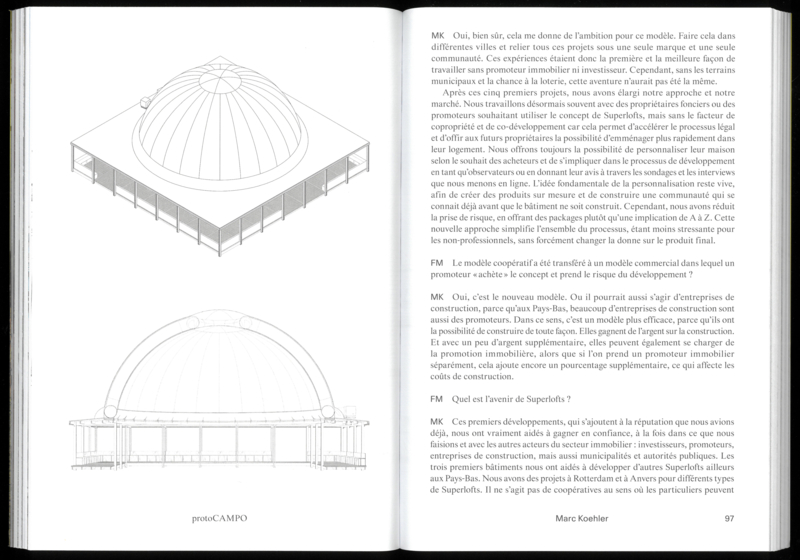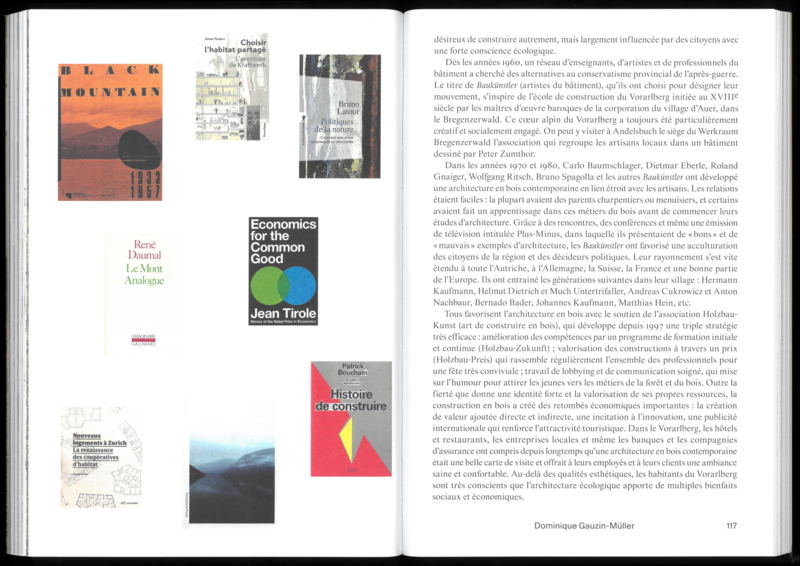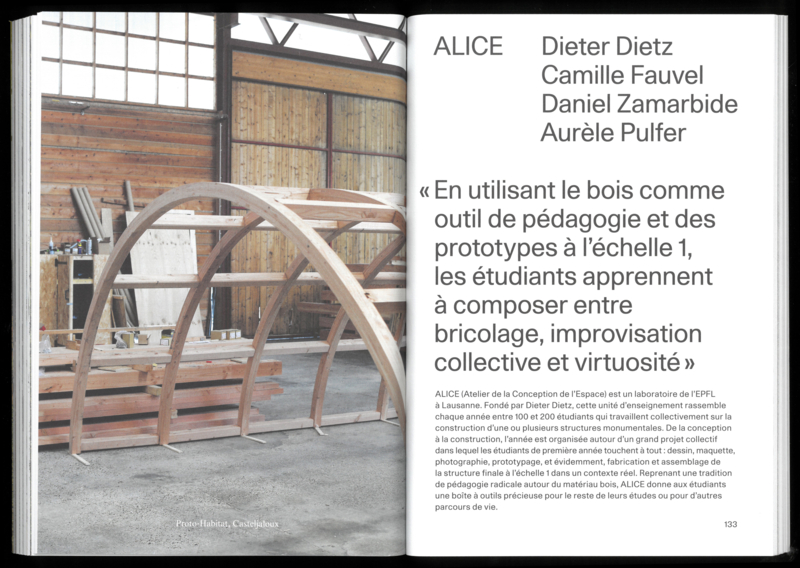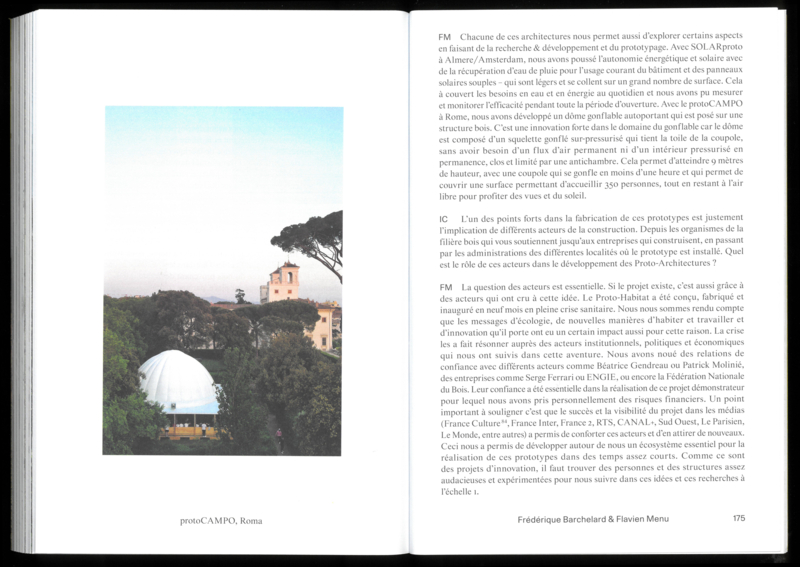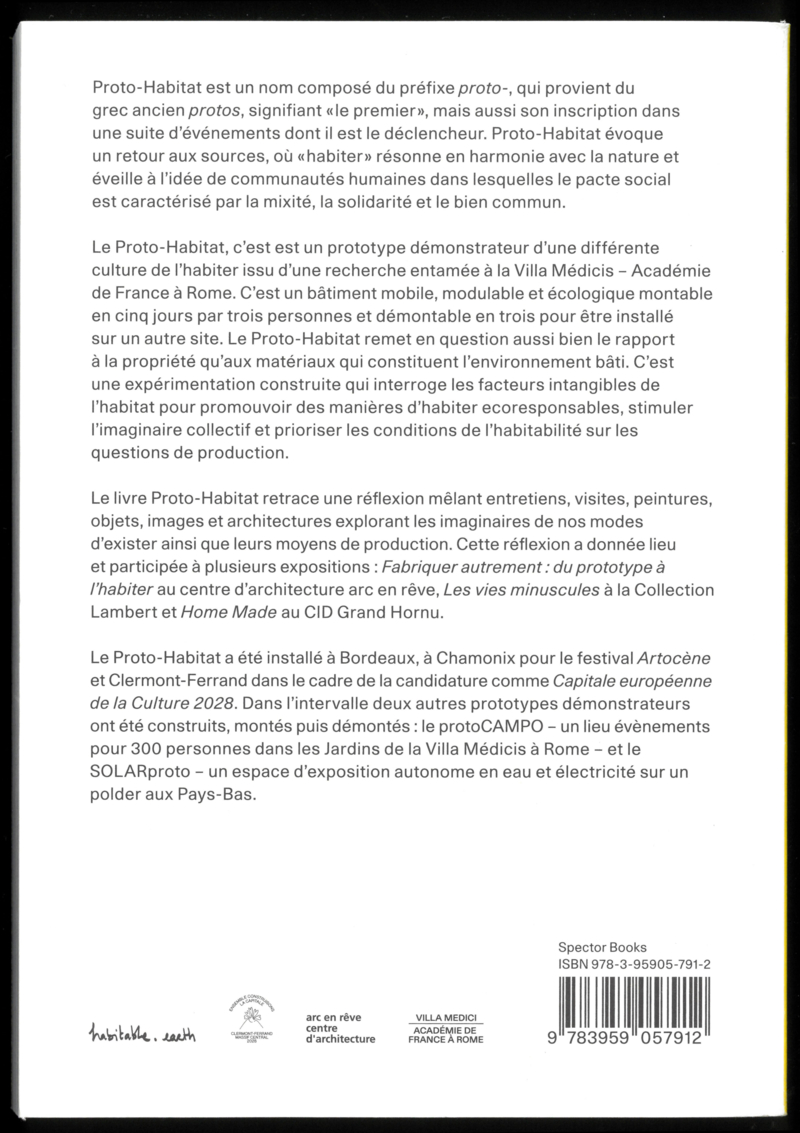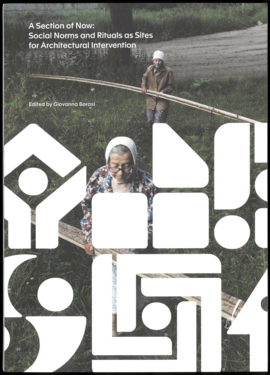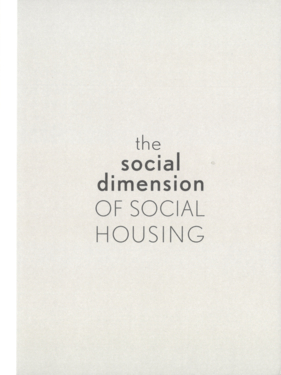Proto-Habitat is a name composed of the prefix proto-, which comes from the ancient Greek protos, meaning “the first”, but also its inscription in a series of events of which it is the trigger. Proto-Habitat evokes a return to basics, where “living” resonates in harmony with nature and awakens to the idea of human communities in which the social pact is characterized by diversity, solidarity and the common good.
The Proto-Habitat is a demonstrator prototype of a different culture of living resulting from research initiated at the Villa Medici - Académie de France in Rome. It is a mobile, modular and ecological building that can be assembled in five days by three people and dismantled in three to be installed on another site. Proto-Habitat calls into question both the relationship to property and to the materials that constitute the built environment. It is a constructed experiment that questions the intangible factors of housing to promote eco-responsible ways of living, stimulate the collective imagination and prioritize the conditions of habitability over questions of production.
The book Proto-Habitat retraces a reflection combining interviews, visits, paintings, objects, images and architecture exploring the imagination of our ways of existing as well as their means of production. This reflection gave rise to and participated in several exhibitions: Fabricating differently: from the prototype to inhabiting it at the Arc en Rêve architecture center, Tiny Lives at the Collection. Lambert and Home Made at CID Grand Hornu. The Proto-Habitat was installed in Bordeaux, in Chamonix for the Artocène festival and Clermont-Ferrand as part of the candidacy for European Capital of Culture 2028. In the meantime two other demonstrator prototypes were built, assembled then dismantled: the protoCAMPO - an events venue for 300 people in the Gardens of the Villa Medici in Rome - and the SOLARproto - an autonomous water and electricity exhibition space on a polder in the Netherlands.
